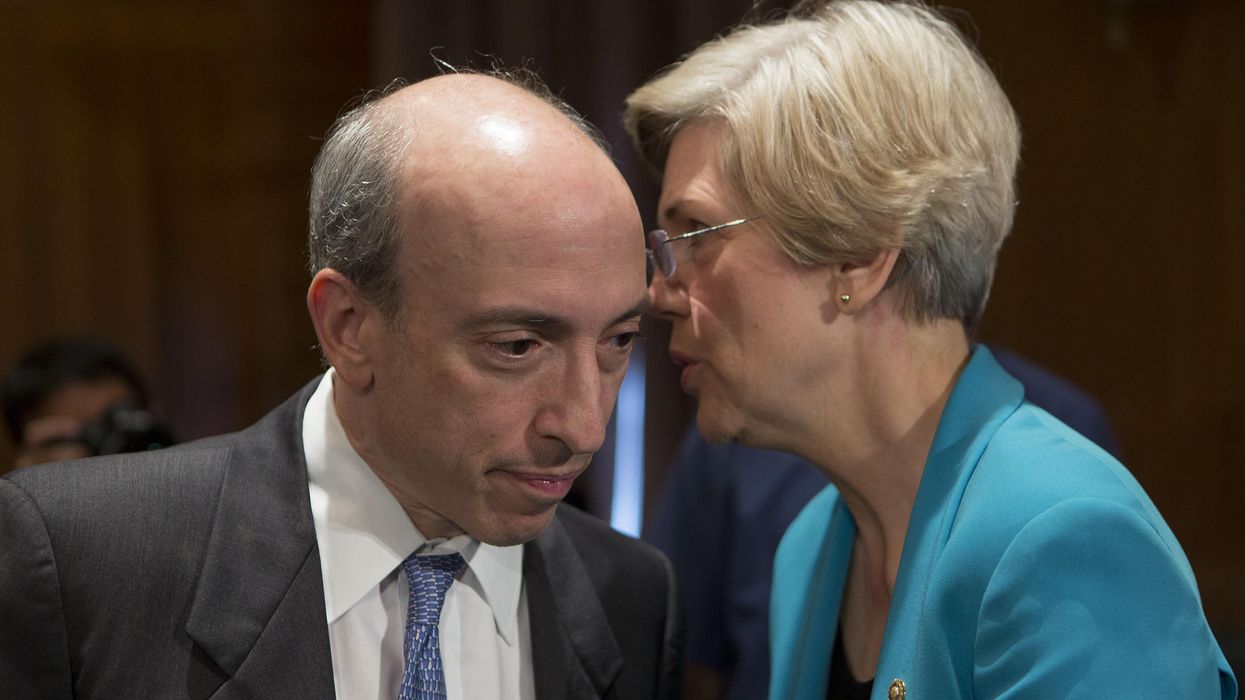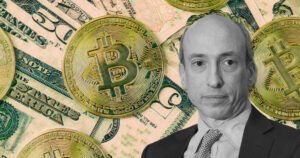Uncensored Crypto docuseries episode 8 hits some important issues. Getting close to the end of the series, we’re combining one of the most boring topics (regulation) with one of the most intriguing (black markets). Either—or perhaps both—of those subjects can be a bit scary for some cryptocurrency investors. After all, lack of clear regulation and the uncertainty of black markets and scams have long been cited as reasons to not get involved in crypto investing. But they don’t have to be anxiety-inducing subjects. This episode of the docuseries sheds some light on why crypto regulation is important and how crypto black markets are different from other kinds of black markets.

Regulatory clarity
“Our economy flourishes because people can know the rules. They apply equally to everyone. You don’t cut your own special deals. And unfortunately in crypto, that’s kind of in the code. Either people are just getting away with stuff, kind of regulatory arbitrage and taking risks with regulation, or they’re getting crushed with regulation by enforcement.” -Congressman Warren Davidson, Congressman from Ohio
It’s a slow, uphill journey, but these days more politicians are jumping on the crypto bandwagon. Of course, it takes more than a handful of congressmen and senators to catch the vision before we actually see some coherent and beneficial crypto legislation come to fruition. On one hand, you have some very public support of crypto in cities like New York and Miami.
At the same time though, there’s a lack of regulatory clarity that the SEC doesn’t seem inclined to improve. When Gary Gensler became the SEC chair at the beginning of 2021, the crypto world was optimistic because of history teaching about blockchain. But, by summer, hope had waned as Gensler’s actions portrayed anything but support for cryptocurrency. As Congressman Davidson says in the docuseries, for now, crypto remains a game of whack-a-mole between blockchain projects and regulators.
Blockchain needs new regulations
 “But the bottom line is the entire legal structure for how to regulate these things needs to be redesigned. And it’s not crazy. This happened with the internet in the mid 1990s.” -Ryan Sean Adams, Founder, Mythos Capital
“But the bottom line is the entire legal structure for how to regulate these things needs to be redesigned. And it’s not crazy. This happened with the internet in the mid 1990s.” -Ryan Sean Adams, Founder, Mythos Capital
Probably the biggest problem in regulating blockchain and cryptocurrency technologies is that they’ve completely changed the game of finance. The whole point of DeFi was to create an alternate financial services industry by cutting out intermediaries. Right now, regulating intermediaries is the main way the government keeps the financial markets in check. As a result, regulations need to be completely reconceptualized to deal with trustless smart contracts and coded programs. This takes time.
Black markets
 “They’ve often been very self-regulating entities. They abide by their own interpretations of what is ethical and what is not. It has its limitations, but to suggest that it’s just an anarchistic free for all in the blockchain space, it’s not.” -Jeremy Gardner, Founder of Augur and Blockchain Education Network
“They’ve often been very self-regulating entities. They abide by their own interpretations of what is ethical and what is not. It has its limitations, but to suggest that it’s just an anarchistic free for all in the blockchain space, it’s not.” -Jeremy Gardner, Founder of Augur and Blockchain Education Network
If you don’t know the story of Ross Ulbricht and how he created and went to prison for The Silk Road—a crypto black market in the early Bitcoin days—you definitely need to watch this episode of the Uncensored Crypto docuseries. Many cryptocurrency enthusiasts see Ulbricht’s conviction as a shot across the bow from regulators who were afraid of what blockchain could do.
Despite the fact The Silk Road was, in many ways, a self-regulating free market, it could not be permitted by the powers that be. Nevermind the fact that the government and the Fed regularly collude as a fiat money cartel, any completely free market operating outside the purview of big brother’s watchful eye cannot be allowed to exist. There are some who argue that the rise and fall of black markets like The Silk Road happen in part because there’s a lack of regulatory clarity. When DEXs and DeFi products are operating in a regulatory void, they can easily be targeted and shut down, whether they should be or not. The ongoing lawsuit between the SEC and Ripple is a good example of muddy waters causing confusion about what’s legal and what’s not.
Scams
“I find the main difference between them was that the ones I’d bought didn’t exist. And so consequently, they never came. And it took me a few days to realize that I’m dealing with a whole different world here. There’s nobody that I can appeal to. And dumb as it sounds now, in hindsight, hadn’t really understood that.” -Jack du Rose, Co-Founder at Colony
In this episode of the Uncensored Crypto docuseries, Jack du Rose discusses how he got scammed in the early days of cryptocurrency, trying to buy mining rigs that didn’t exist. The rude awakening that he faced was the fact that, in crypto, there were no consumer protections. Because it’s still largely unregulated, scams can and do often occur. The reality, however, is that scams exist in most industries. One of the reasons blockchain is such a rapidly innovating space is because it’s open and unrestrained. This is a blessing and a curse.
There’s an important balance to find between investors who are willing to self-educate and participate in a free and fledgling industry and creating clear regulations and consumer protections. There are voices all along the spectrum of what level of regulation is needed for cryptocurrency and blockchain, but one thing is certain, the battle is being duked out by regulators and innovators as we speak.
Uncensored Crypto’s regulation takes
As we learned in this episode of the Uncensored Crypto docuseries, regulation is a topic with many shades of gray. While the cryptosphere is generally in favor of total separation from the current financial system, some kind of regulation is likely in our future.
The more money flows into cryptocurrency—the total industry market cap crossed $3 trillion in November of 2021—the more interest governments will have in regulating it. Of course, Uncle Sam wants his piece of the profits and nothing is going to stop him from trying to get it. But even if regulation is an inevitability, it could ease some of the tension and uncertainty that has historically slowed down adoption. If investors can feel certain they’re not constantly on the brink of imprisonment when investing in blockchain and cryptocurrency, they’ll feel more at ease joining the orange pill army. Not only that, when crypto projects can spend less time dodging and fighting regulators and more time building, innovation will move forward.
About the Author

Michael Hearne
About Decentral Publishing
Decentral Publishing is dedicated to producing content through our blog, eBooks, and docu-series to help our readers deepen their knowledge of cryptocurrency and related topics. Do you have a fresh perspective or any other topics worth discussing? Keep the conversation going with us online at: Facebook, Twitter, Instagram, and LinkedIn.


